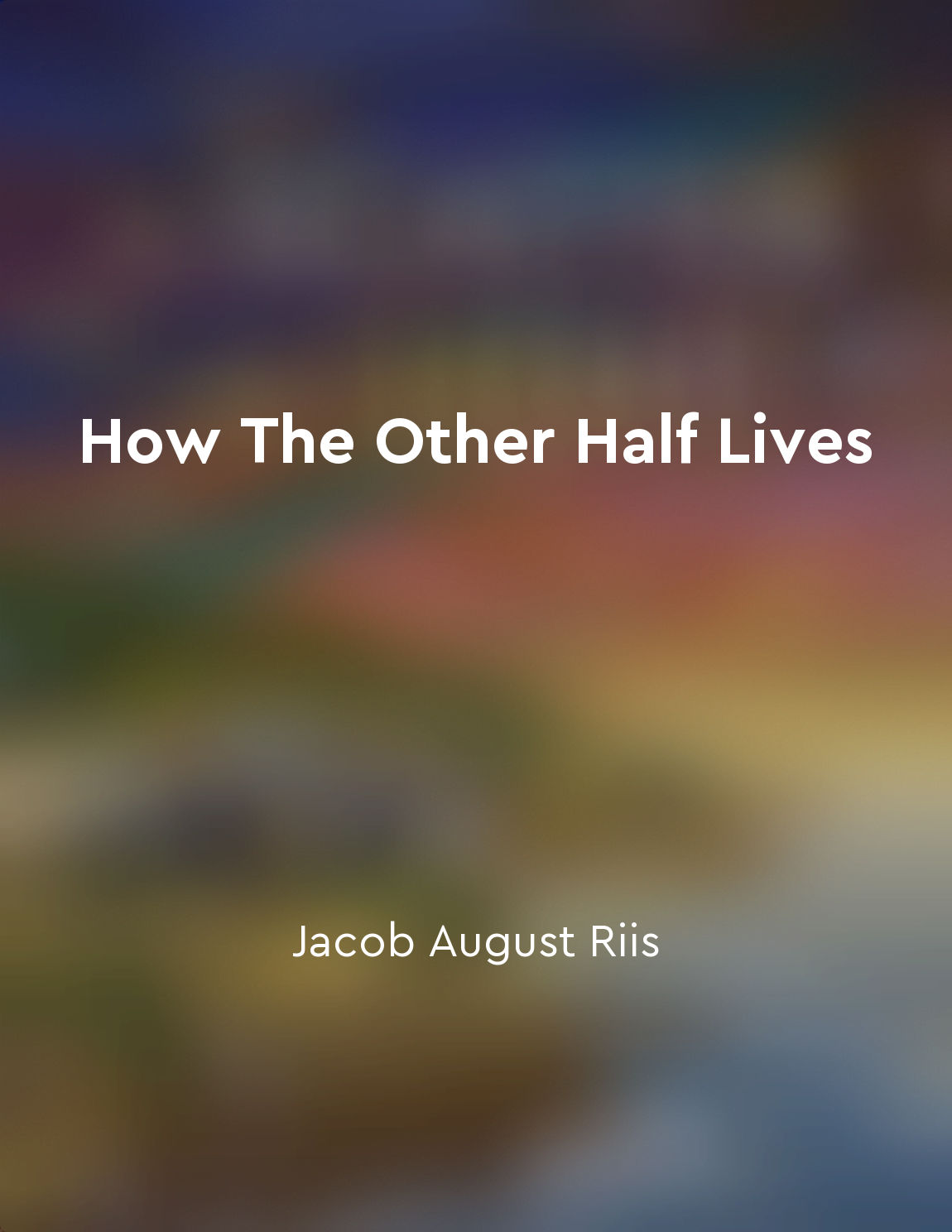Public health concerns from "summary" of How The Other Half Lives by Jacob August Riis
The health of the public is a matter of grave concern, especially in densely populated urban areas where poverty and crowded living conditions prevail. These conditions create a breeding ground for disease and illness to spread rapidly among the inhabitants. The lack of proper sanitation facilities, clean water sources, and access to healthcare exacerbates the situation, putting the lives of the residents at risk. In tenement buildings where families are crammed into small, poorly ventilated rooms, the spread of contagious diseases is rampant. Tuberculosis, cholera, typhoid fever, and other deadly illnesses thrive in such environments, taking a heavy toll on the poor and vulnerable members of society. The living conditions in these tenements are deplorable, with filth, garbage, and vermin infesting the buildings, further contributing to the deterioration of public health. The children are the most vulnerable to the harsh realities of tenement life. Malnourished and living in squalor, they are more susceptible to illness and disease. The lack of access to proper medical care and nutritious food only exacerbates their plight, leading to high infant mortality rates and a bleak future for the next generation. The overcrowded and unsanitary conditions in the tenements not only affect the physical health of the residents but also their mental well-being. The constant exposure to violence, crime, and poverty takes a toll on their mental health, leading to high rates of depression, anxiety, and substance abuse. The cycle of poverty and poor health perpetuates itself, trapping generations in a vicious cycle of suffering and despair. Efforts to improve public health in these marginalized communities are essential to breaking the cycle of poverty and disease. Providing access to clean water, proper sanitation, and affordable healthcare services is crucial in ensuring the well-being of all residents. Education on hygiene practices and disease prevention is also vital in empowering the community to take control of their health and future. The plight of the poor and marginalized is a stark reminder of the inequalities that exist in society. Addressing public health concerns in these communities is not only a matter of humanitarianism but also a moral imperative. It is only through collective action and social reform that we can hope to create a more just and equitable society for all.Similar Posts
Resilience and adaptability are key attributes in times of crisis
In a world that is constantly changing and facing unforeseen challenges, the ability to bounce back and adapt quickly is crucia...
Human capital is a valuable asset
Human capital, which refers to the knowledge, skills, and abilities possessed by individuals, is indeed a critical asset in the...
Humans and pathogens have a complex relationship
The relationship between humans and pathogens is a multifaceted one, characterized by a constant struggle for survival on both ...
Social status determines one's life trajectory
In Annawadi, a slum near the Mumbai airport, social status holds the power to shape destinies. For those residing in the slum, ...

